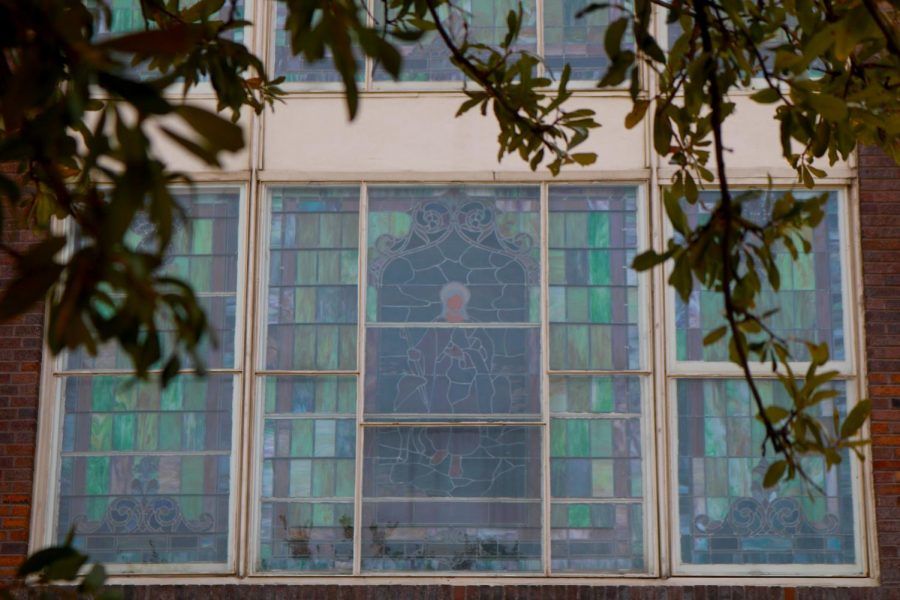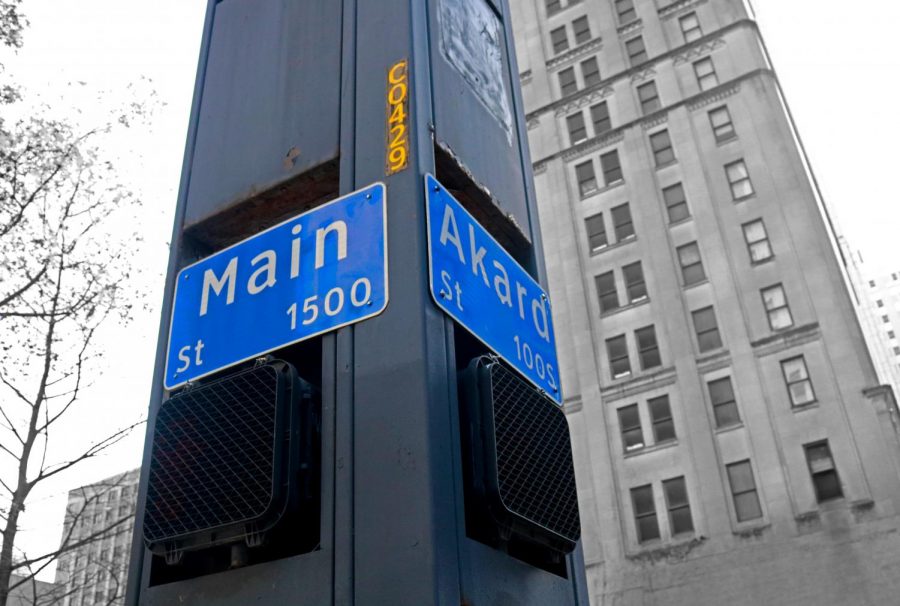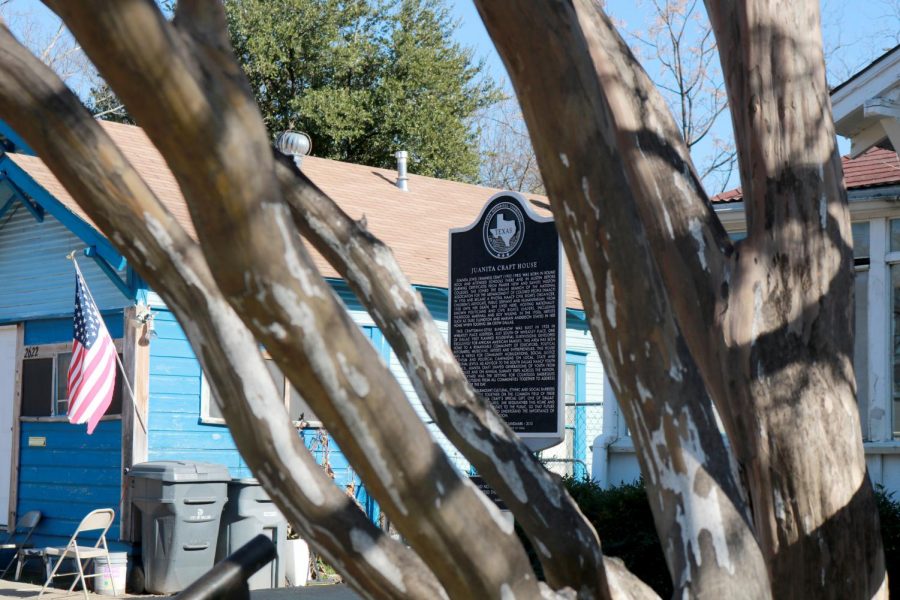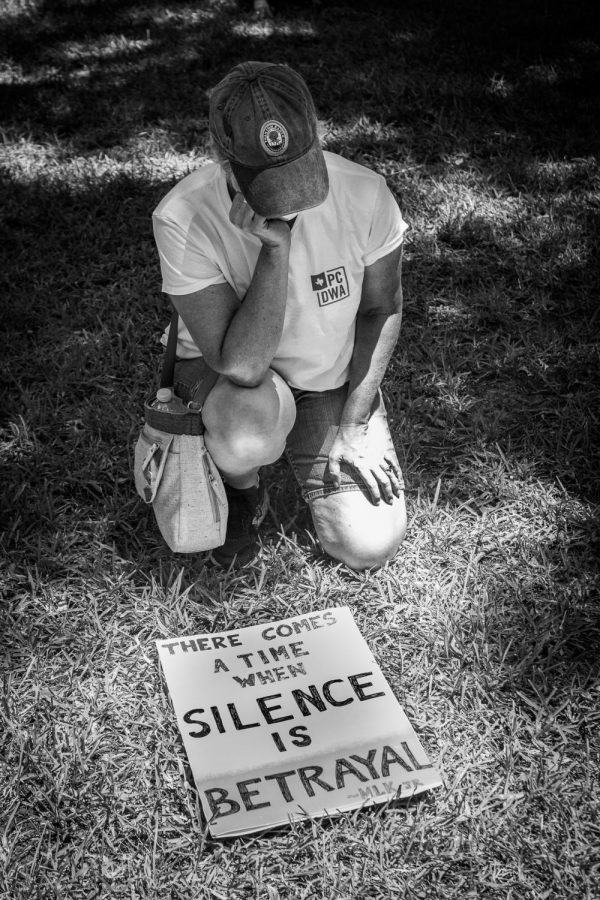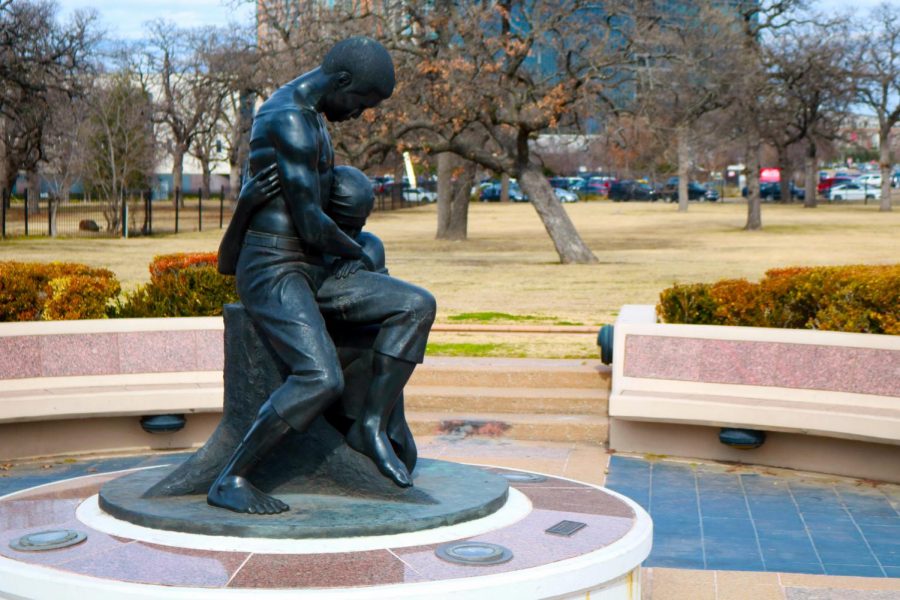A statue depicting two Black former slaves embracing, one with a scarred back from whips, sits at the middle of the Freedman’s Cemetery Memorial. Artist David Newton made the sculpture, titled “Dream of Freedom,” in 1990.
The History Of Race In Dallas
Shedding light on unspoken history of Black Dallas
Selma. Montgomery. Little Rock.
Schoolchildren across the nation learn about specific cities where Black activists and communities struggled for civil rights.
Rarely does Dallas feature in these conversations.
In his 2003 book “White Metropolis,” Michael Phillips argued the unique racial dynamics in Dallas should have attracted more attention from academia, calling it the “undiscovered country” to historians.
Up until that point, a journalist had written the only attempt to explain Dallas’ racial history. It remains notorious to this day. Columnist Jim Schutze’s 1987 book “The Accommodation,” was originally slated to come out through Dallas-based publisher Taylor Publishing until, persuaded by a Dallas businessman, they blocked the book’s release last-minute.
The book eventually found a publisher in New Jersey for its initial 1987 release, and it’s set to be reissued through Dallas publisher Deep Vellum in September.
Nowadays, a physical copy of “The Accommodation” is rare, and valued in the $1,000s. D Magazine reported in 2015 that an illicit effort among young Dallasites to circulate the book had emerged, and in 2020, Schutze confirmed the enduring popularity of the book among young people in the same publication.
Schutze wrote that the reason was a gap in the knowledge of young Dallasites, especially young white Dallasites, growing up in a sharply racially divided city with no explanation of how it got that way. He thought that through his book, they sought to know the reason why.
Sophomore Hadley Harbison said her knowledge of Dallas history, including its history with civil rights, is limited.
“I know that JFK was assassinated in Dallas,” she said, but she had trouble coming up with anything else.
Harbison believes most students in this school would have similar trouble.
She thinks that her lack of knowledge on Dallas’ history is partially due to the fact that she doesn’t give any thought to it.
“Also, it’s not anything I learned in school,” Harbison said.
The Dallas “Origin Myth” has played a role in obscuring the historical significance of Dallas. For decades, business leaders and journalists painted Dallas as a city with no history and no reason for being, conjured up by the sheer strength of will of white pioneers and businessmen.
But Dallas does have a history, and its history includes Black people, along with their communities, their achievements and their drive for progress. Its history also includes hate crimes, discrimination and segregation.
In an effort to shed light on this history, The Bagpipe will cover these topics in a series of stories for Black History Month.
